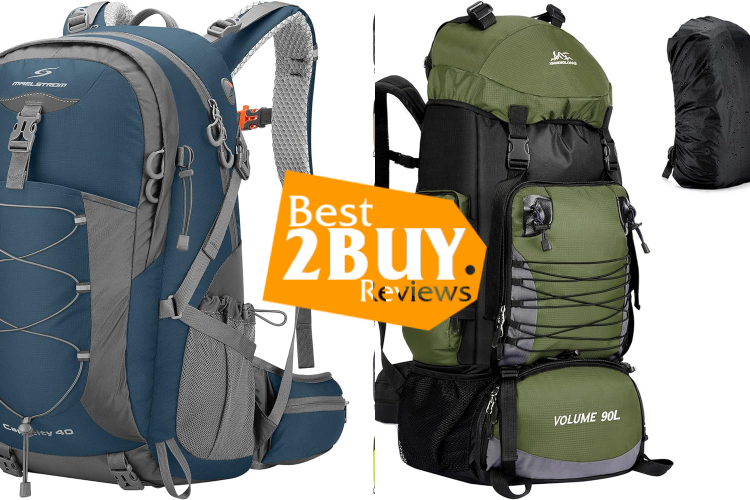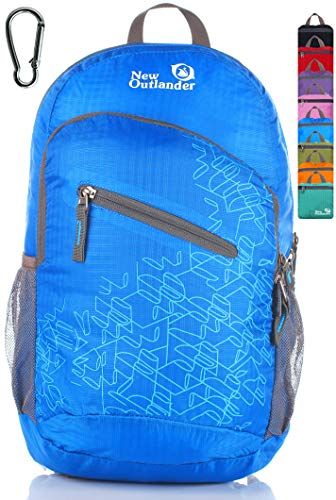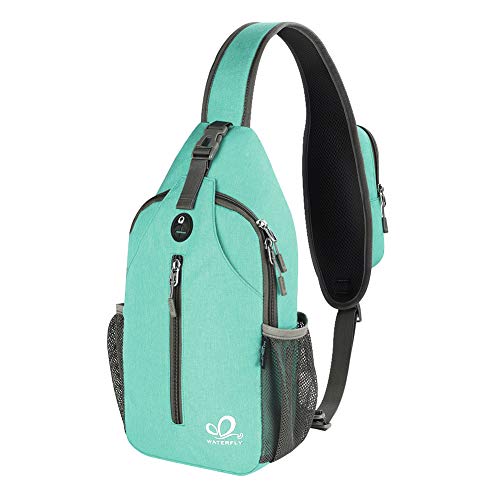The Ultimate Guide to Hiking Daypacks: Choosing the Perfect Companion for Your Adventures

- 1. The Ultimate Guide to Hiking Daypacks: Choosing the Perfect Companion for Your Adventures
- 1.1. What Is A Hiking Daypack?
- 1.2. How to Choose a Daypack for Hiking
- 1.2.1. Key Features To Look For When Choosing A Hiking Daypack
- 1.2.1.1. Capacity
- 1.2.1.2. Weight
- 1.2.1.3. Comfort and Fit
- 1.2.1.4. Durability
- 1.2.1.5. Organization and Accessibility
- 1.2.1.6. Ventilation
- 1.2.2. Considerations When Choosing a Hiking Daypack
- 1.2.2.1. Type of Hike
- 1.2.2.2. Climate and Weather
- 1.2.2.3. Budget
- 1.2.1. Key Features To Look For When Choosing A Hiking Daypack
- 1.3. Top Picks for Hiking Daypacks
Hiking transcends mere physical exertion; it embodies a voyage of self-exploration, a harmonious connection with the natural world, and a retreat from the chaotic pace of daily existence. Regardless of whether you're an experienced trekker or a beginner venturing into the vast outdoors, possessing the appropriate gear is paramount. Among the indispensable items for any hiking venture, a dependable daypack stands out.
Within this all-encompassing manual, we will delve into the characteristics, factors to ponder, and standout choices for hiking daypacks, ensuring that you discover the ideal companion for your escapades.
What Is A Hiking Daypack?
A Hiking Daypack is designed specifically for day-long hiking excursions, providing a compact and lightweight alternative to larger backpacks designed for extended trips or backpacking adventures. Its main purpose is to efficiently carry essential items for a single day of hiking, such as water, snacks, spare clothing, a first aid kit, map, compass, and personal belongings.
How to Choose a Daypack for Hiking
Key Features To Look For When Choosing A Hiking Daypack
Capacity
The size of a hiking daypack is a primary consideration. Daypacks are available in different capacities, usually measured in liters, and the appropriate size depends on the duration of your hike and the items you intend to bring. For brief day excursions, a daypack with a capacity of 20-30 liters is generally suitable, enabling you to carry essentials such as water, snacks, a first aid kit, and extra layers. Longer hikes or those involving more equipment may require a larger pack, with capacities extending up to 40 liters.
Weight
Daypacks for hiking are crafted to be lightweight, allowing you to transport your essential items without being weighed down by unnecessary bulk. When choosing a daypack, opt for designs constructed from robust yet lightweight materials like ripstop nylon or polyester. This guarantees that your backpack maintains its lightweight quality while providing the essential durability needed to endure the challenges of the trail.
Comfort and Fit
Comfort is paramount during a hike, and the right fit can make all the difference. Look for daypacks with adjustable shoulder straps, hip belts, and chest straps to ensure a customized fit. A well-fitted pack will distribute weight evenly across your body, reducing strain on your shoulders and back. Padded shoulder straps and back panels enhance overall comfort, especially during extended hikes where a properly fitting pack is crucial.
Durability
Hiking daypacks need to withstand the challenges of rough terrain and unpredictable weather conditions. Opt for packs with reinforced seams, durable zippers, and water-resistant or waterproof materials to keep your gear safe and dry. A durable daypack ensures that it can endure the elements and last for multiple hiking adventures.
Organization and Accessibility
Efficient organization is key when it comes to selecting a hiking daypack. Look for designs that offer multiple compartments and pockets, allowing you to organize your gear effectively. Quick and easy access to essentials such as water bottles, snacks, maps, and first aid kits is essential on the trail. Some daypacks also feature hydration reservoir sleeves, providing convenient access to water without having to stop and take off your pack.
Ventilation
Hiking can be a sweaty activity, especially during more challenging climbs. A well-ventilated daypack can make a significant difference in your overall comfort. Look for packs with mesh panels or suspended mesh back panels that promote airflow, keeping your back cooler and reducing the buildup of sweat. Proper ventilation enhances your comfort, particularly on warm days or during strenuous hikes.
Considerations When Choosing a Hiking Daypack
Type of Hike
The first and foremost consideration when choosing a hiking daypack is the type of hike you plan to undertake. Different hikes demand different features from a daypack. For short day hikes, a smaller and lighter pack may be sufficient to carry essentials like water, snacks, and a light jacket. However, for longer and more challenging hikes that may require additional gear, a larger pack with extra features and better support becomes essential. Consider the duration, terrain, and intensity of your typical hikes to determine the appropriate size and capacity for your daypack.
Climate and Weather
The climate and weather conditions of your hiking destination should heavily influence your choice of a daypack. If you frequently hike in wet or rainy environments, investing in a water-resistant or waterproof daypack is crucial to protect your belongings from the elements. Look for sealed seams, water-resistant zippers, and durable materials that can withstand moisture. In contrast, for hikes in hot climates, prioritize a daypack with excellent ventilation to prevent overheating. Mesh panels, breathable materials, and an ergonomic design can enhance airflow and keep you comfortable during warmer hikes.
Budget
While the allure of feature-packed, high-end daypacks is undeniable, it's essential to establish a budget before embarking on your search. Hiking daypacks come in a wide range of prices, and finding the right balance between features and cost is key. Consider the frequency of your hikes and the specific features you need, such as hydration reservoir compatibility, multiple compartments, or specialized gear attachments. Assessing your budgetary constraints will help you narrow down your options and find a daypack that meets your requirements without breaking the bank.
Top Picks for Hiking Daypacks
- Osprey Daylite Plus: Known for its comfort and durability, the Osprey Daylite Plus offers a 20-liter capacity, multiple pockets, and a hydration reservoir sleeve. It's suitable for short to moderate day hikes.
- Deuter Speed Lite 24: This 24-liter pack is a favorite among hikers for its lightweight design, excellent ventilation, and versatile features. It's ideal for day hikes in various terrains.
- Patagonia Nine Trails 20L: Combining simplicity with functionality, the Patagonia Nine Trails offers a 20-liter capacity, a comfortable fit, and durable construction. It's a great option for day hikers looking for a reliable pack.
In conclusion, investing in the right hiking daypack is crucial for a comfortable and enjoyable outdoor experience. Consider your specific needs, the type of hikes you'll be undertaking, and your budget when selecting the perfect daypack. With the right companion on your back, you'll be well-prepared to tackle the trails and create lasting memories in the great outdoors.











